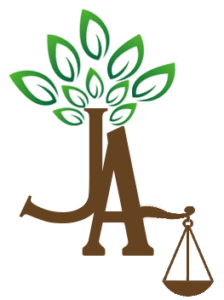Conservatorships
Receive, collect, and make decisions regarding an adult’s property.
 For information regarding Conservatorship for a Minor Child, click here.
For information regarding Conservatorship for a Minor Child, click here.
When a loved one loses his or her once-vast capacity, it often becomes necessary to seek a conservatorship over the incapacitated individual in order protect their assets and income. Incapacity is not always the loss of proper mental or physical functioning; it also includes age. In Georgia, an individual who is under the age of 18 is deemed to have a legal incapacity. For an adult, the lack of capacity relates to the individual’s ability to make and communication reasonable decisions.
As opposed to a guardianship, which relates to health care decisions, a conservatorship relates to financial decisions and entails the management of assets and income of an incapacitated individual. Even though an interested party, such as a family member, or an independent fiduciary can be nominated by the individuals seeking the conservatorship, the appointment of a conservator is a determination made by the probate court. The establishment of a conservatorship requires a court order. On account of the high potential for impropriety, Georgia has put a number of burdens on those who are tasked to serve as conservators and the law requires continued oversight by a probate court judge. It is occasionally in the best interest of all parties if an independent fiduciary that has experience in the administration of a conservatorship, like an elder law or probate attorney, is appointed to serve in this capacity. On the other hand, it may be more suitable that a family member is appointed as a conservator and that person may simply want to receive some advice and coaching from an attorney as certain conservatorship tasks come up.
 Conservators must adhere to fiduciary duties and procedural duties required by law. Conservators must provide Georgia probate courts with annual returns each year. Conservators will have to request the authority and power from a probate court to carry out certain transactions, such as investing assets or selling real property. Navigating the legal procedural requirements can lead to costly mistakes for an inexperienced person trying their best, such as family members who have been appointed conservator of a loved one.
Conservators must adhere to fiduciary duties and procedural duties required by law. Conservators must provide Georgia probate courts with annual returns each year. Conservators will have to request the authority and power from a probate court to carry out certain transactions, such as investing assets or selling real property. Navigating the legal procedural requirements can lead to costly mistakes for an inexperienced person trying their best, such as family members who have been appointed conservator of a loved one.
Conservatorship proceedings require certain court filings and always require a hearing. Jordan Alford helps families throughout the entire process, including exploring if a less restrictive option exists, such as estate planning and the preparation of an advance directive for health care and durable power of attorney. Jordan Alford currently serves as conservator for incapacitated individuals and advises other conservators in how to efficiently administer their loved one’s conservatorship.
If you are currently serving as a conservator, or are facing the realization that one may be necessary, the Jordan Alford can help – even if it’s simply to answer a few questions.
Common Causes of Incapacity of the Elderly:
Stroke Dementia Alzheimer’s Cognitive Impairment
Have questions about protecting and planning for the elderly?
We can help. Contact us today at (770) 628-1892.
